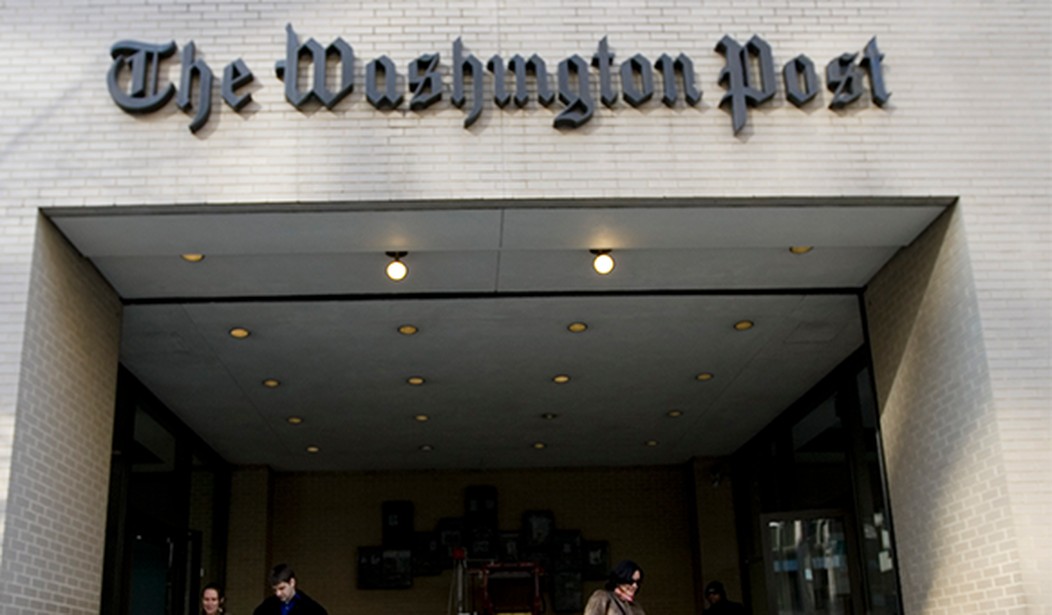It has not been a week for The Washington Post. First, they had an internal meltdown over a retweet. Dave Weigel, the paper’s longtime political reporter, retweeted a joke that some found offensive. It set off a civil war like no other. It spilled onto social media. Staffers were going after one another, even dredging up old tweets. The executive editor had to step in, but still, the firestorm continued. Felicia Sonmez was the reporter who called out Weigel, which eventually led to the latter being suspended. Sonmez’s pervasive attacks against other co-workers and her inability to let this incident go led to the paper firing her last Thursday. Bye, Felicia. Yet, we’re circling back to Taylor Lorenz here. It’s about her piece about the Johnny Depp-Amber Heard trial.
It wasn’t even about the trial per se. It was about how social media influencers are going to start using their platforms to cover more breaking news due to the traffic. The defamation trial which lasted several weeks was held in Fairfax County, Virginia. Yet, two people were said to be contacted by Lorenz but in fact, never were solicited for comment. The Post delivered an editor’s note, and even that was inaccurate according to the people who called out the paper for saying they reached out to them. It looked as if the paper and Lorenz were caught in a lie. Lorenz blamed her editors. And now Erik Wemple, the paper’s media critic, asked a key question regarding this story. Why should anyone trust the Post if this is how corrections are hashed out? It shouldn’t take an incident of the editors performing a mickey mouse surgical procedure when it came to fixing the piece to bring this point up as there are other instances where the Post has been terrible—but it’s still a good question, nonetheless. And it’s from within, so they can’t bury it. If a paper can’t do right when they screw up, what good are they (via WaPo):
Washington Post staff writer Taylor Lorenz on Saturday posted a Twitter thread declaring that it was not she who inserted an erroneous line into her article. It was her editor. “I did not write the line and was not aware it was inserted,” wrote Lorenz.
“This should have been a small correction for a miscommunication, but it turned into a multi-day media cycle, intentionally aimed at discrediting the Washington Post and me.”
One takeaway from Lorenz’s thread was unmistakable: “In a series of tweets, Lorenz blames her editor for having inserted the error into her story and says she is the victim of a ‘bad faith’ campaign,” tweeted CNN senior media reporter Oliver Darcy.
Blaming editors for mistakes sounds like a craven act, and indeed it can be. But it also happens occasionally at prominent U.S. media outlets. Lorenz’s pointed tua culpa is at odds with the spirit of Post policy, however. And in this case, it received approval from The Post’s masthead, according to a source at the paper. A Post spokesperson says, “We provided input that we asked she take into consideration.”
The imbroglio kicked off a week ago with the publication of Lorenz’s article on the Internet content creators who thrived from the Johnny Depp-Amber Heard defamation trial. The original version said that two creators — Alyte Mazeika and the anonymous ThatUmbrellaGuy — had been contacted for comment. FoxNews.com reported that the paper deleted that claim with a stealth edit.
Recommended
Here's the correction:
EDITOR'S NOTE
The first published version of this story stated incorrectly that Internet influencers Alyte Mazeika and ThatUmbrellaGuy had been contacted for comment before publication. In fact, only Mazeika was asked, via Instagram. After the story was published, The Post continued to seek comment from Mazeika via social media and queried ThatUmbrellaGuy for the first time. During that process, The Post removed the incorrect statement from the story but did not note its removal, a violation of our corrections policy. The story has been updated to note that Mazeika declined to comment for this story and ThatUmbrellaGuy could not be reached for comment.
A previous version of this story also inaccurately attributed a quote to Adam Waldman, a lawyer for Johnny Depp. The quote described how he contacted some Internet influencers and has been removed.
Yet even Mazeika says that’s still not how things went down.
What?! @washingtonpost I will say this AGAIN.
— Legal Bytes ???? (@legalbytesmedia) June 4, 2022
I was not reached out to by @TaylorLorenz for comment until after my tweet below. She reached out to me by IG DM AFTER she did on Twitter. Both DMs were sent to me AFTER I called her out here.
Please stop lying and take the L. https://t.co/5mylhJTU9f pic.twitter.com/ZfS7BUCeDF
Kudos, again, to @ErikWemple for covering the WashPost's multi-correction fiasco on Taylor Lorenz's last article.
— Glenn Greenwald (@ggreenwald) June 12, 2022
Amazing: Wemple notes that their latest Editor's Note *still contains a demonstrable, material falsehood.* When he asks editors, they basically tell him to fuck off. pic.twitter.com/kQJD5iVKP6
Here’s the ironic part. The story was actually somewhat interesting. Lorenz had that horrible story where she doxxed Libs of Tik Tok for essentially being too good at shredding liberal narratives, but this story was about how influencers could make some serious cash covering breaking news stories, albeit ones that probably geared more towards celebrity gossip. Still, people want to know what these folks are doing. They screwed up, and instead of making the corrections required—they made a bigger mess. Maybe it wasn’t a stealth edit. Maybe it was the editors. Apparently, and Wemple added this in his article, a meeting of the top editors occurred. Deputy Features Editor David Malitz is reported to be “the one who inserted the mistake about comment requests to YouTube content creators.” Wemple added that the error might have cost Malitz a promotion. Of course, when asked, the paper offered no comment.
Here's where Wemple lobbed a good question to his employer [emphasis mine]:
We’ve asked The Post for clarification on this point, because it matters: If The Post can’t nail down the facts in an editor’s note, where else should we trust it to do so? “That stands as is,” says a Post spokesperson. “We won’t be able to get into what the internal discussions were.”
Another question hanging over the editor’s note relates to policy. What if the first iteration had asserted that the mistake came off the keyboard of an editor? Any such declaration would grind against a long-standing provision of The Post’s standards guide, which reads, “We do not attribute blame to individual reporters or editors (e.g. ‘because of a reporting error’ or ‘because of an editing error’). But we may note that an error was the result of a production problem or because incorrect information came to us from a trusted source (wire services, individuals quoted, etc.).” The policy controls how the newspaper articulates corrections and editor’s notes, and has a more tenuous sway over tweets and other statements from The Post.
[…]
Decades ago, The Post’s institutional approach to corrections made more sense. The work of reporters back then wasn’t flyspecked on social media sites, dissected for mistakes and repurposed for the next instance of wrongdoing, or alleged wrongdoing. These days, it is. If the argument for The Post’s policy were ever correct, it’s not anymore.
And if The Post revisits its correction policy, it may want to lay down a guideline or two about how its journalists respond to social media brouhahas. “We have a responsibility to recognize these bad faith campaigns for what they are and when these sorts of things do and do not warrant acknowledgment,” wrote Lorenz after the uproar over her Depp-Heard piece. She also rapped CNN: “This type of coverage is so irresponsible & dangerous,” Lorenz wrote on Twitter. “It’s misrepresenting my words to amplify a manufactured outrage campaign by right wing media & radicalized influencers, which is driving a vicious harassment/smear campaign against me. CNN is gleefully piling on.”
That outrage works much better when a 135-word editor’s note isn’t hanging over your article.
This isn’t the first time Wemple has spoken reason here. He called out CNN for the gross breach in ethics regarding Chris Cuomo and his de facto communications strategizing he did with his brother when the latter was engulfed in a sexual misconduct scandal. His brother is former New York Governor Andrew Cuomo who resigned in disgrace over the alleged incident(s). He also called out Katie Couric for selectively editing an interview with pro-Second Amendment supporters in her anti-Second Amendment documentary. And he asks a good question here about why people should trust the paper who employs him if doling out corrections is a byzantine and tortured process.























Join the conversation as a VIP Member